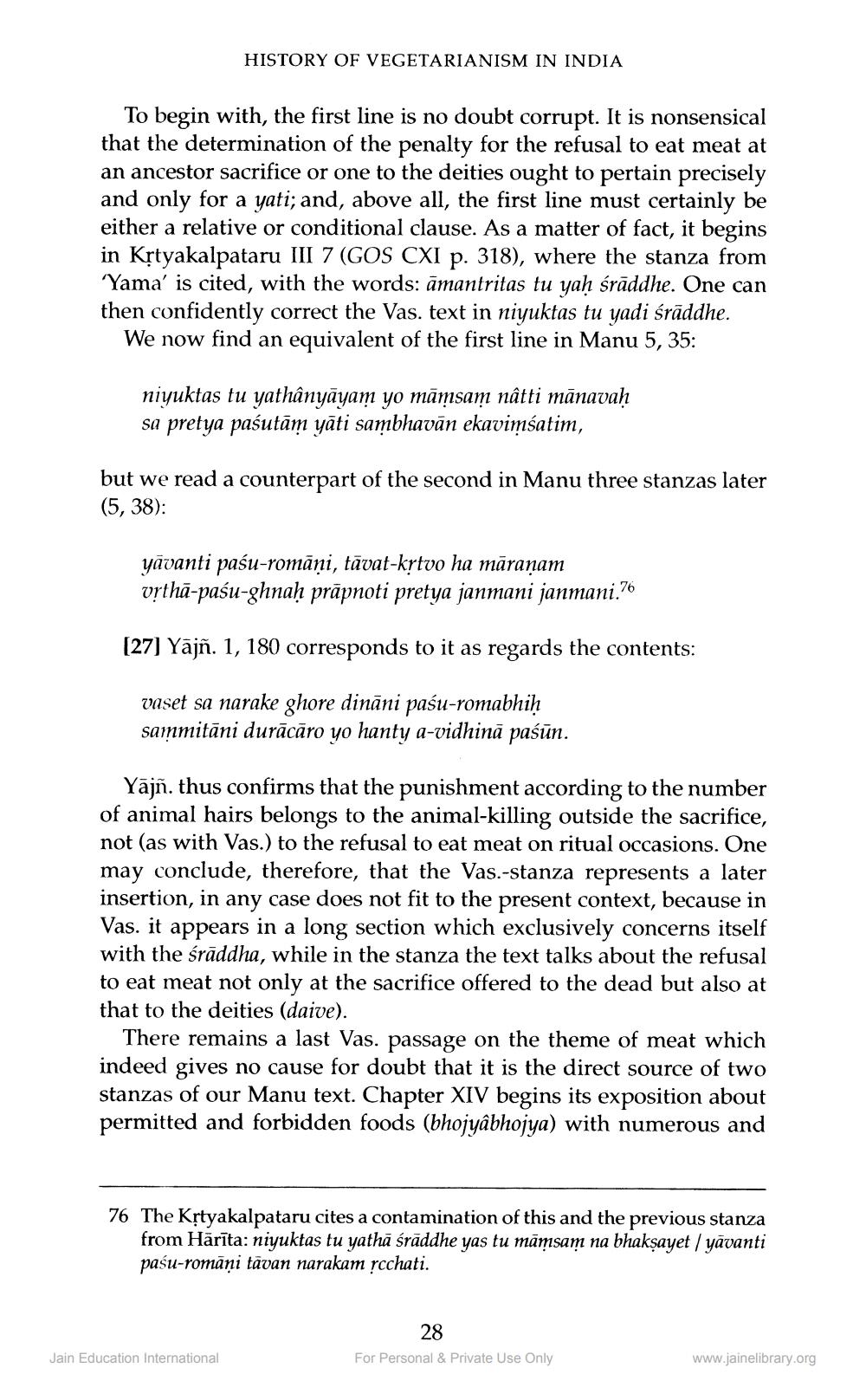________________
HISTORY OF VEGETARIANISM IN INDIA
To begin with, the first line is no doubt corrupt. It is nonsensical that the determination of the penalty for the refusal to eat meat at an ancestor sacrifice or one to the deities ought to pertain precisely and only for a yati; and, above all, the first line must certainly be either a relative or conditional clause. As a matter of fact, it begins in Krtyakalpataru III 7 (GOS CXI p. 318), where the stanza from 'Yama' is cited, with the words: amantritas tu yaḥ śraddhe. One can then confidently correct the Vas. text in niyuktas tu yadi śraddhe. We now find an equivalent of the first line in Manu 5, 35:
niyuktas tu yathânyāyam yo māmsam nâtti mānavaḥ sa pretya paśutām yāti sambhavān ekavimśatim,
but we read a counterpart of the second in Manu three stanzas later (5, 38):
yavanti paśu-romāņi, tāvat-kṛtvo ha māraṇam vṛtha-paśu-ghnaḥ prāpnoti pretya janmani janmani.76
[27] Yajñ. 1, 180 corresponds to it as regards the contents:
vaset sa narake ghore dinani paśu-romabhiḥ sammitāni durācāro yo hanty a-vidhinā paśūn.
Yajn. thus confirms that the punishment according to the number of animal hairs belongs to the animal-killing outside the sacrifice, not (as with Vas.) to the refusal to eat meat on ritual occasions. One may conclude, therefore, that the Vas.-stanza represents a later insertion, in any case does not fit to the present context, because in Vas. it appears in a long section which exclusively concerns itself with the śrāddha, while in the stanza the text talks about the refusal to eat meat not only at the sacrifice offered to the dead but also at that to the deities (daive).
There remains a last Vas. passage on the theme of meat which indeed gives no cause for doubt that it is the direct source of two stanzas of our Manu text. Chapter XIV begins its exposition about permitted and forbidden foods (bhojyâbhojya) with numerous and
76 The Krtyakalpataru cites a contamination of this and the previous stanza from Hārīta: niyuktas tu yathā śrāddhe yas tu māmsam na bhakṣayet | yavanti paśu-romāni tavan narakam rcchati.
Jain Education International
28
For Personal & Private Use Only
www.jainelibrary.org




